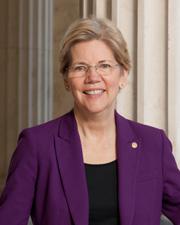0
0
0
A bill to prohibit drilling in the outer Continental Shelf, to prohibit coal leases on Federal land, and for other purposes.
1/14/2025, 5:11 PM
Summary of Bill S 5588
Bill 118 s 5588, also known as the "Outer Continental Shelf Protection Act," is a piece of legislation introduced in the US Congress with the aim of preventing drilling in the outer Continental Shelf and prohibiting coal leases on Federal land. The bill seeks to protect the environment and natural resources by restricting the extraction of fossil fuels in these areas.
If passed, this bill would have significant implications for the energy industry and the economy as a whole. It would limit the ability of companies to access and exploit oil and gas reserves in the outer Continental Shelf, as well as restrict the mining of coal on Federal land. This could potentially impact energy prices and availability, as well as the overall energy independence of the United States.
Proponents of the bill argue that it is necessary to protect the environment and reduce the country's reliance on fossil fuels, which contribute to climate change and other environmental issues. They believe that by limiting drilling and coal mining, the US can move towards a more sustainable and environmentally friendly energy future. Opponents of the bill, on the other hand, argue that it could have negative economic consequences, including job losses in the energy sector and increased energy prices for consumers. They also point out that the US relies heavily on fossil fuels for its energy needs, and restricting access to these resources could lead to energy shortages and increased dependence on foreign sources. Overall, Bill 118 s 5588 is a controversial piece of legislation that raises important questions about the balance between environmental protection and economic growth. It remains to be seen how Congress will ultimately decide on this issue and what impact it will have on the energy industry and the country as a whole.
If passed, this bill would have significant implications for the energy industry and the economy as a whole. It would limit the ability of companies to access and exploit oil and gas reserves in the outer Continental Shelf, as well as restrict the mining of coal on Federal land. This could potentially impact energy prices and availability, as well as the overall energy independence of the United States.
Proponents of the bill argue that it is necessary to protect the environment and reduce the country's reliance on fossil fuels, which contribute to climate change and other environmental issues. They believe that by limiting drilling and coal mining, the US can move towards a more sustainable and environmentally friendly energy future. Opponents of the bill, on the other hand, argue that it could have negative economic consequences, including job losses in the energy sector and increased energy prices for consumers. They also point out that the US relies heavily on fossil fuels for its energy needs, and restricting access to these resources could lead to energy shortages and increased dependence on foreign sources. Overall, Bill 118 s 5588 is a controversial piece of legislation that raises important questions about the balance between environmental protection and economic growth. It remains to be seen how Congress will ultimately decide on this issue and what impact it will have on the energy industry and the country as a whole.
Current Status of Bill S 5588
Bill S 5588 is currently in the status of Bill Introduced since December 18, 2024. Bill S 5588 was introduced during Congress 118 and was introduced to the Senate on December 18, 2024. Bill S 5588's most recent activity was Read twice and referred to the Committee on Energy and Natural Resources. as of December 18, 2024
Bipartisan Support of Bill S 5588
Total Number of Sponsors
4Democrat Sponsors
4Republican Sponsors
0Unaffiliated Sponsors
0Total Number of Cosponsors
3Democrat Cosponsors
2Republican Cosponsors
0Unaffiliated Cosponsors
1Policy Area and Potential Impact of Bill S 5588
Primary Policy Focus
Alternate Title(s) of Bill S 5588
A bill to prohibit drilling in the outer Continental Shelf, to prohibit coal leases on Federal land, and for other purposes.
A bill to prohibit drilling in the outer Continental Shelf, to prohibit coal leases on Federal land, and for other purposes.
Comments
Sponsors and Cosponsors of S 5588
Latest Bills
To designate the facility of the United States Postal Service located at 521 Thorn Street in Sewickley, Pennsylvania, as the "Mary Elizabeth 'Bettie' Cole Post Office Building".
Bill HR 1461December 11, 2025
Secure Rural Schools Reauthorization Act of 2025
Bill S 356December 11, 2025
Expanding Whistleblower Protections for Contractors Act of 2025
Bill S 874December 11, 2025
Shingle Springs Band of Miwok Indians Land Transfer Act of 2025
Bill HR 2302December 11, 2025
Adams Memorial-Great American Heroes Act
Bill HR 2306December 11, 2025
To designate the facility of the United States Postal Service located at 130 South Patterson Avenue in Santa Barbara, California, as the "Brigadier General Frederick R. Lopez Post Office Building".
Bill HR 2175December 11, 2025
Electric Supply Chain Act
Bill HR 3638December 11, 2025
A bill to require the Secretary of Veterans Affairs to disinter the remains of Fernando V. Cota from Fort Sam Houston National Cemetery, Texas, and for other purposes.
Bill S 1071December 11, 2025
PERMIT Act
Bill HR 3898December 11, 2025
State Planning for Reliability and Affordability Act
Bill HR 3628December 11, 2025



